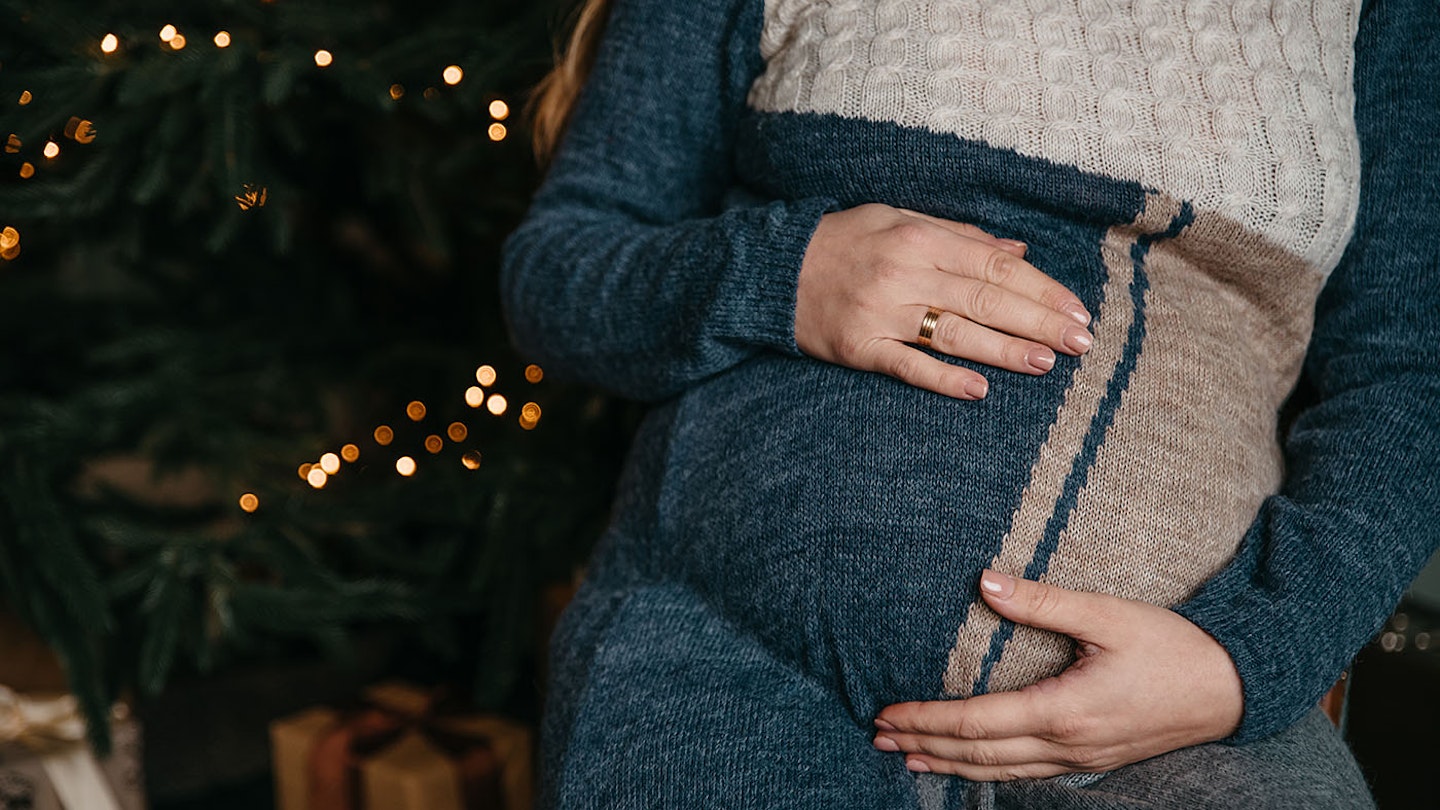From the mince pies to the turkey, food and drink are the heart of so many of our Christmas traditions, and central to our festive celebrations.
But when you’re expecting, it can be hard to know what to eat and Christmas foods that are not safe in pregnancy. With a few simple tweaks to the usual menu, you can adapt merry feasting to benefit your bump, and satisfy your taste buds too.
We spoke to Henrietta Norton, a nutritional therapist and author of Your Pregnancy Nutrition Guide to find out exactly what you should, and shouldn't be eating this Christmas.
What Christmas foods to avoid and that are safe when pregnant
Salmon to start?
Salmon is a great choice for the first course on the big day and there's no need to skip it when you're expecting. "Smoked salmon is a popular Christmas lunch starter, and as long as it’s been kept cold and is fresh, it’s safe to eat when you’re pregnant," says nutritional therapist Henrietta Norton. This is because any parasites are killed during the smoking process. Salmon is full of high-quality protein, and packed with Omega-3 fatty acids, which help build your baby’s brain and neurological system.
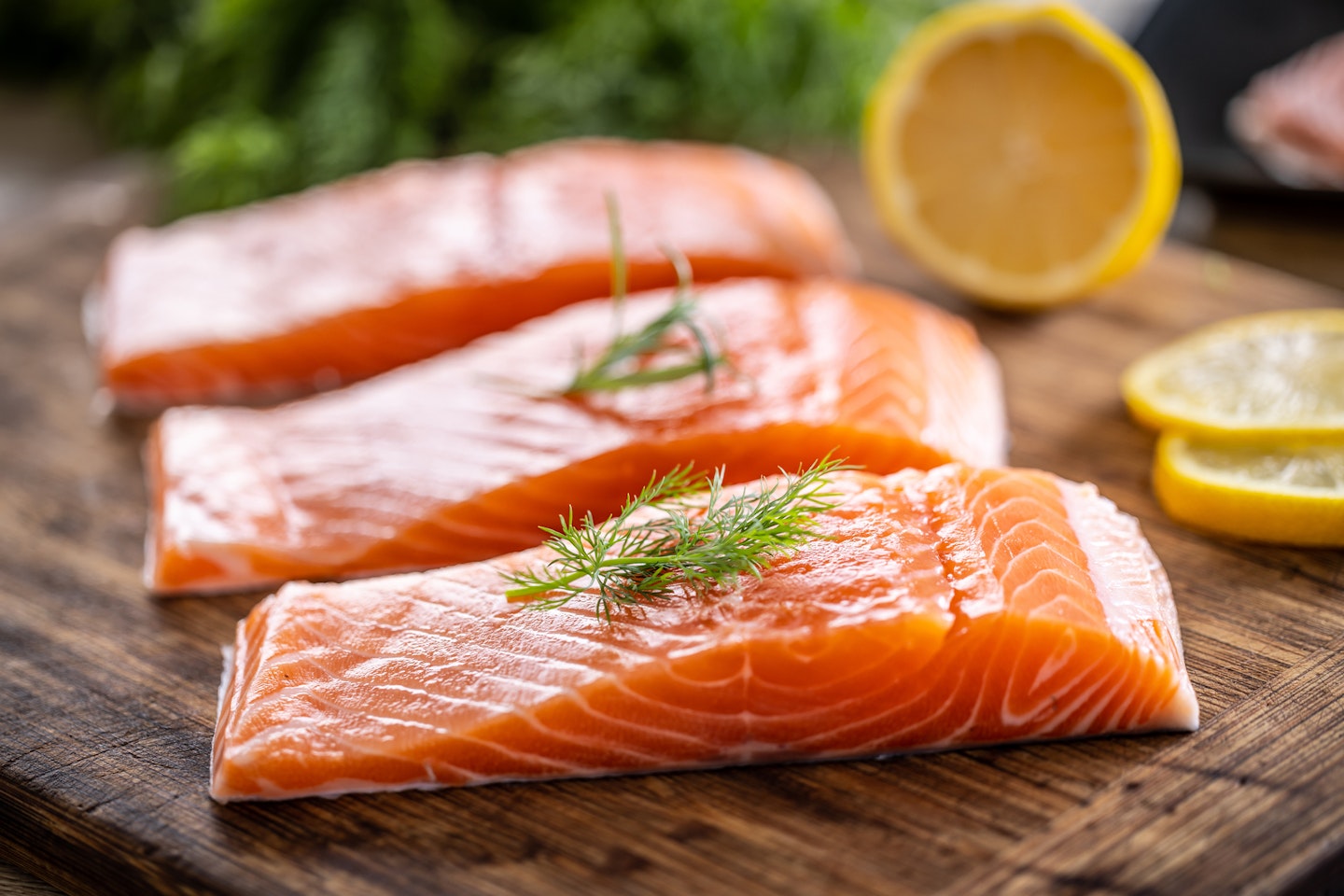
Check the turkey
Turkey is low in fat, has loads of protein, and is a good source of iron, particularly the dark meat. If you have a large bird, make sure it’s properly cooked. To check, cut a few slits around the breast, close to where the leg joins the body, and press above the slits with the flat of a knife. If the turkey is cooked, the juices will be clear.
If there’s the faintest tinge of pink, put it back in the oven and test again in 20 minutes. The same applies to sausages wrapped in bacon and other meat accompaniments. All should be steaming hot out of the oven, with no trace of pink in the middle.
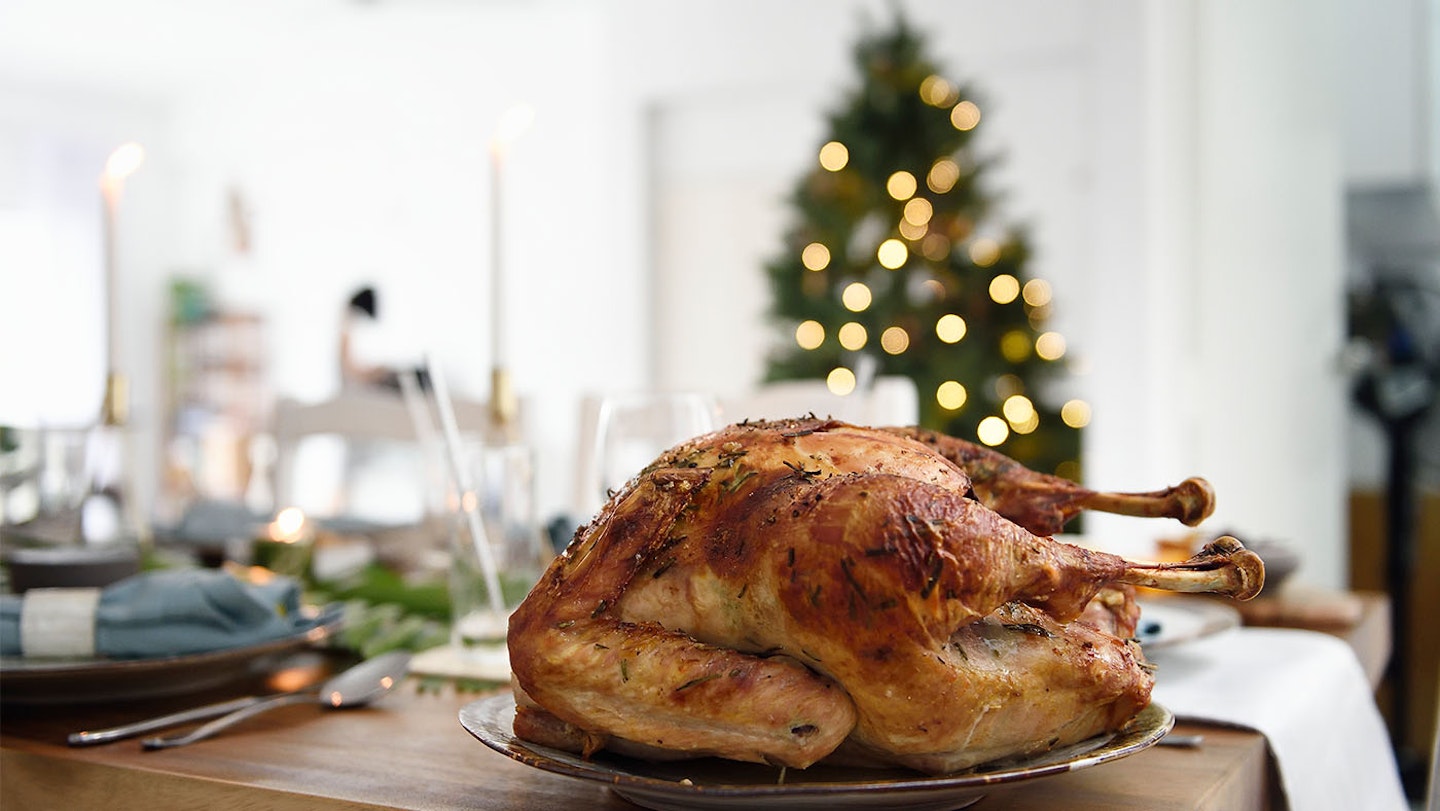
Eat your sprouts!
They might not be your favourite vegetable, but these green brassicas are brimming with goodness! They’re full of folate, which is important for fetal development, and magnesium to help build and repair your body tissue. Plus, they contain high amounts of fibre, to reduce indigestion and constipation.
Just 10 will give you over 140 per cent of the recommended daily amount of vitamin C (needed to make collagen to build your baby’s skin and bones) and lots of vitamin K (essential for blood-clotting). So, if you can stand it, pile your plate high!
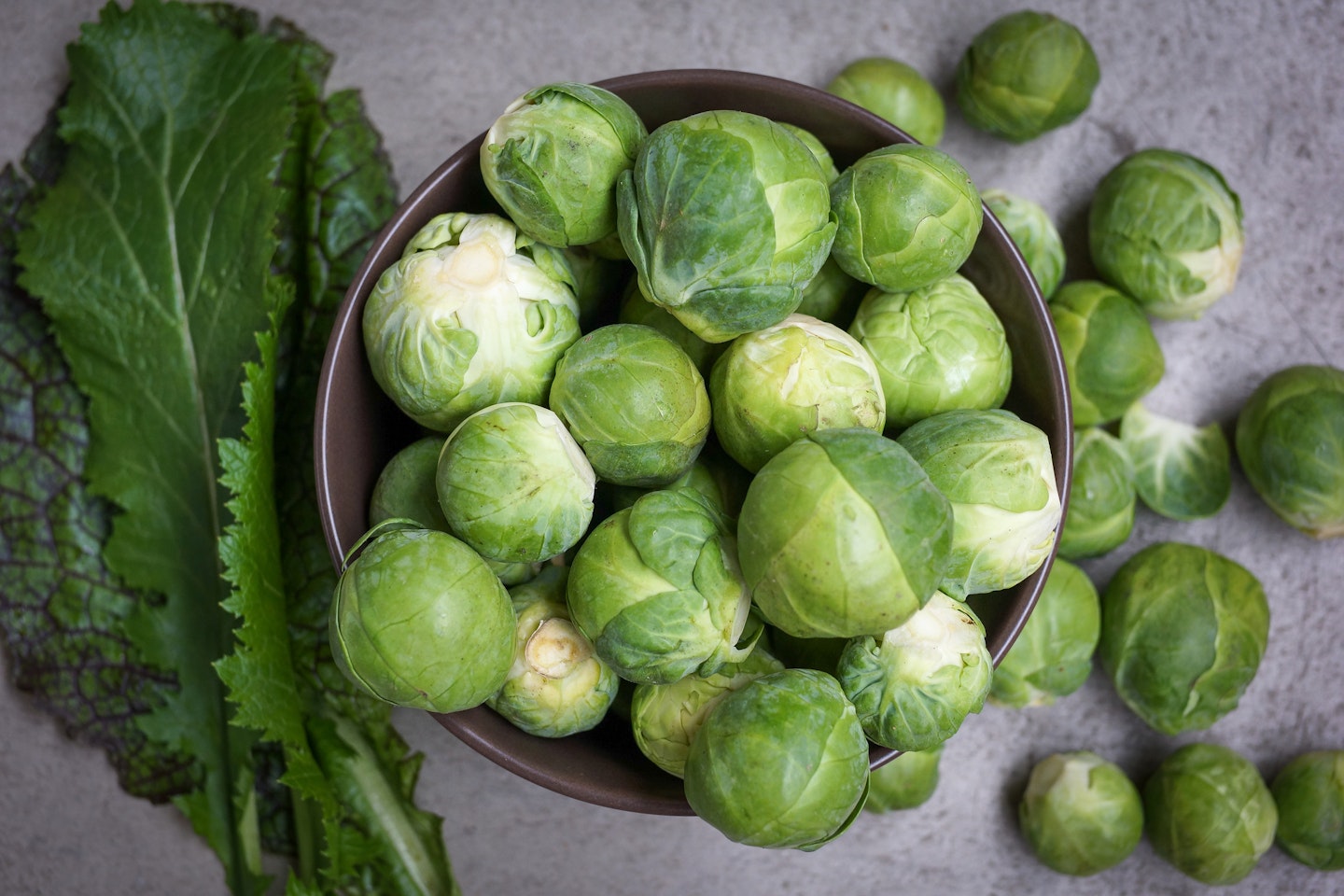
Spoon on the cranberry sauce
Cranberries are another Christmas health booster, with lots of vitamin C. "This helps your immune system, and your baby’s, and also supports circulation," Henrietta says. "Cranberries are also rich in anti-microbes to fight infections, especially in the urinary tract."
Look out for raw egg
There’s no need to miss out on puddings when you’re pregnant, just check any creamy desserts such as ice cream and cheesecake are made with pasteurised milk and eggs, so there’s no risk of salmonella.
"Undercooked eggs are thought to be a risk for salmonella (food poisoning), although the risk is now less than previously thought," advises Henrietta. Raw eggs may be in mousses and custard. Check that the meringues are cooked through, and avoid hollandaise sauce and eggnog.
Christmas cake and fruit cakes don’t need to be avoided either as the alcohol evaporates in the oven. Now, where’s our spoon?
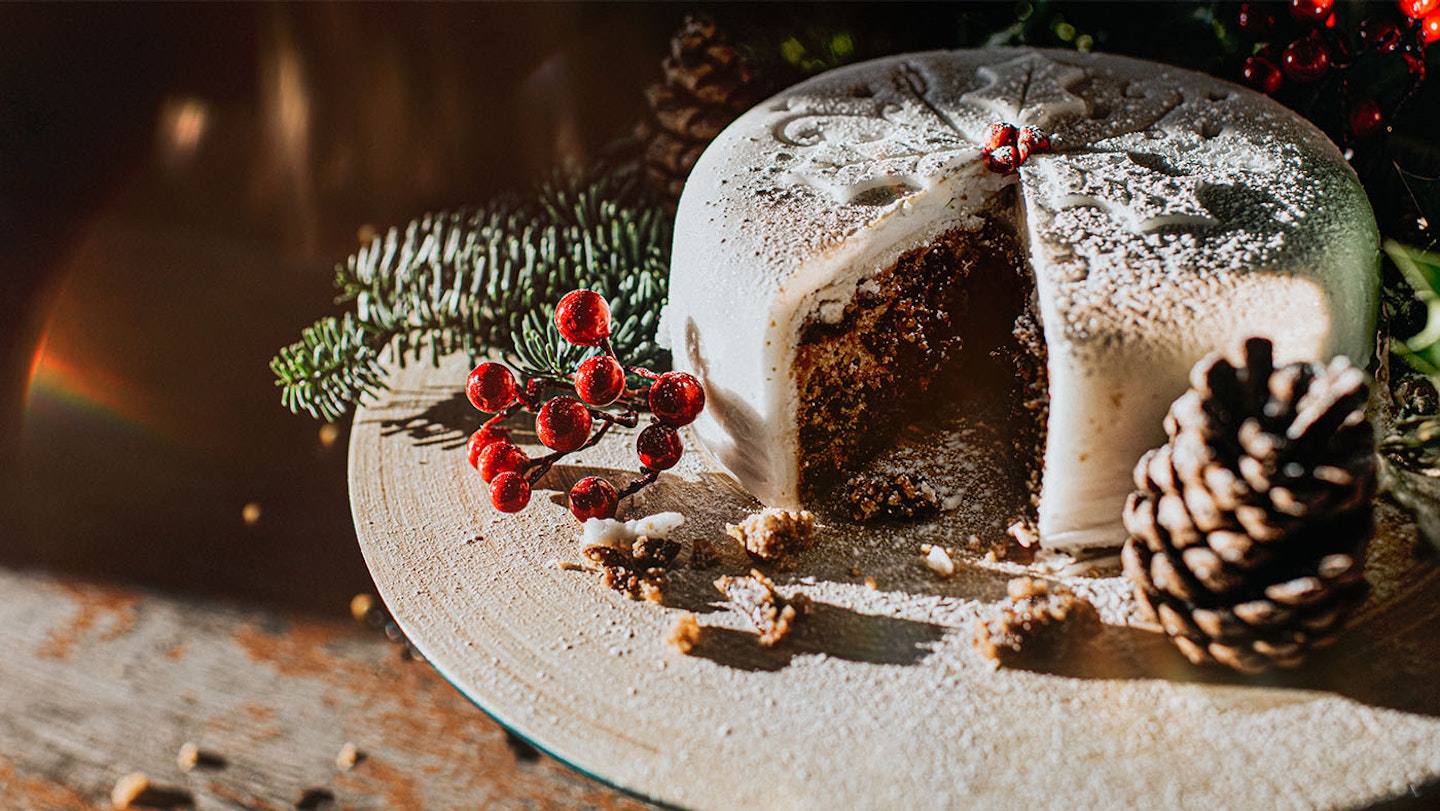
Say no to bubbly
The Department of Health advises pregnant women to avoid alcohol, as it’s associated with risks of prematurity and lower birth weights. "Alcohol is a diuretic, disrupts blood sugar and can reduce nutrients, especially B vitamins," adds Henrietta. The good news is that there are plenty of non-alcoholic drinks you can enjoy instead.
Know your cheese
Wondering which cheese is safe to eat during pregnancy? There’s plenty you can raid on the cheeseboard. Hard cheeses such as Cheddar or Emmental are fine, as are blue cheeses such as Stilton. But steer clear of mould-ripened soft cheeses, such as Camembert and Brie, and soft blue-veined cheeses, such as Gorgonzola or Roquefort.
You should also avoid cheese made with unpasteurised milk. "These can contain listeria and can cause an infection that affects your baby’s health and leads to prematurity," explains Henrietta.
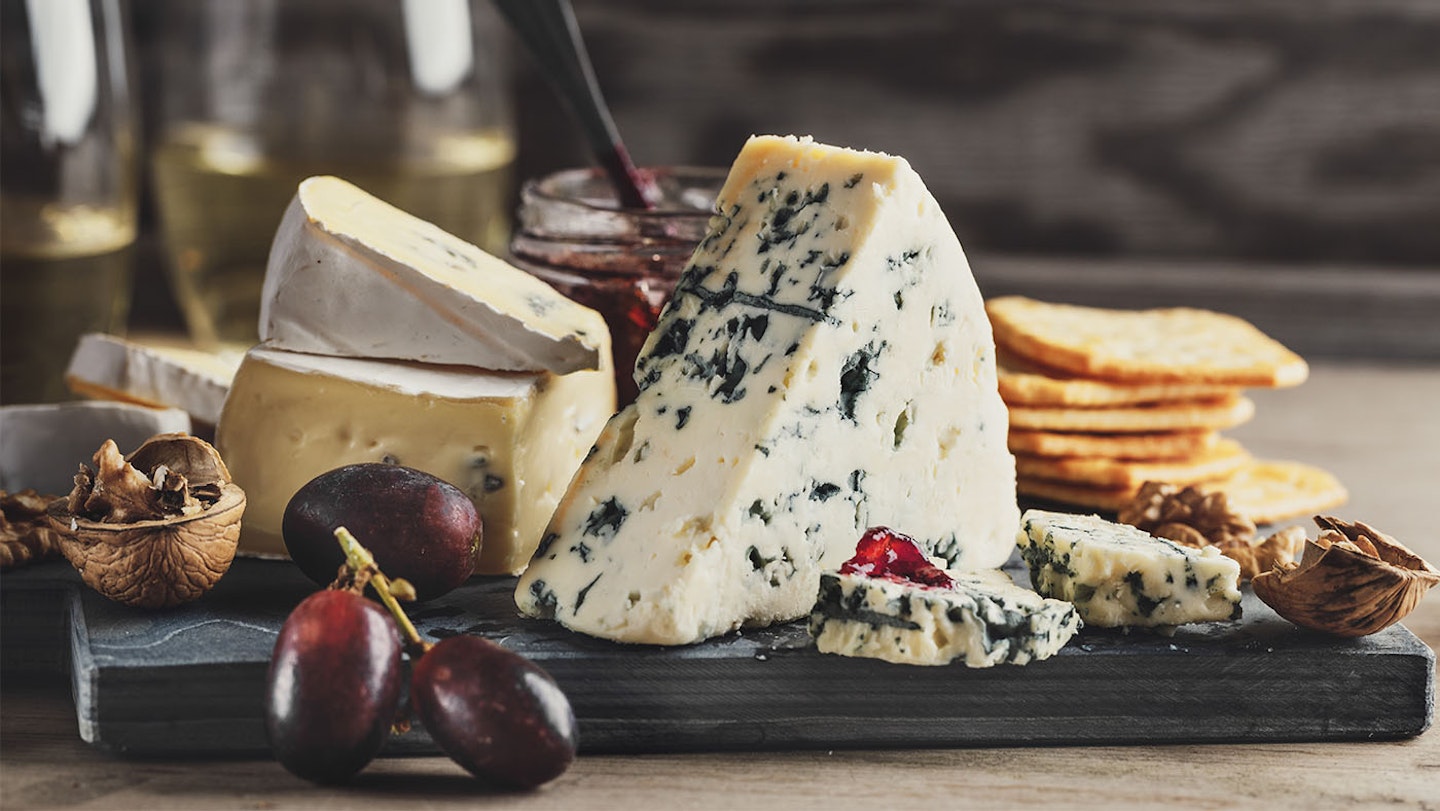
Enjoy party snacks
Dried apricots should be your number-one snack, as they’re rich in iron for healthy cognition and the transport of oxygen to you and your baby’s cells. They’re also full of fibre to support digestion.
You've also got the green light to raid that bowl of nutty nibbles. "Exposure to nuts via the mother’s diet can help a baby develop a natural tolerance," says Henrietta. "But avoid them if either you or your partner are allergic to them."
Walnuts are a good choice. "They’re an excellent source of fatty acids, including DHA which supports the growth of your baby’s nervous system, brain and eyes," says Henrietta. "Walnuts are also rich in vitamin E and phenols, both of which aid cardiovascular health. They can help stop those blood sugar dips that can lead to sugar cravings or energy lows."
Cook meats thoroughly
Avoid raw meat, particularly poultry, pork, sausages, and burgers. Any meat you eat must be prepared properly, should not be pink or show any signs of blood coming out. This is because there is a risk of toxoplasmosis, a little parasite that can live and hide in raw meat, which can be risky to you and your baby.
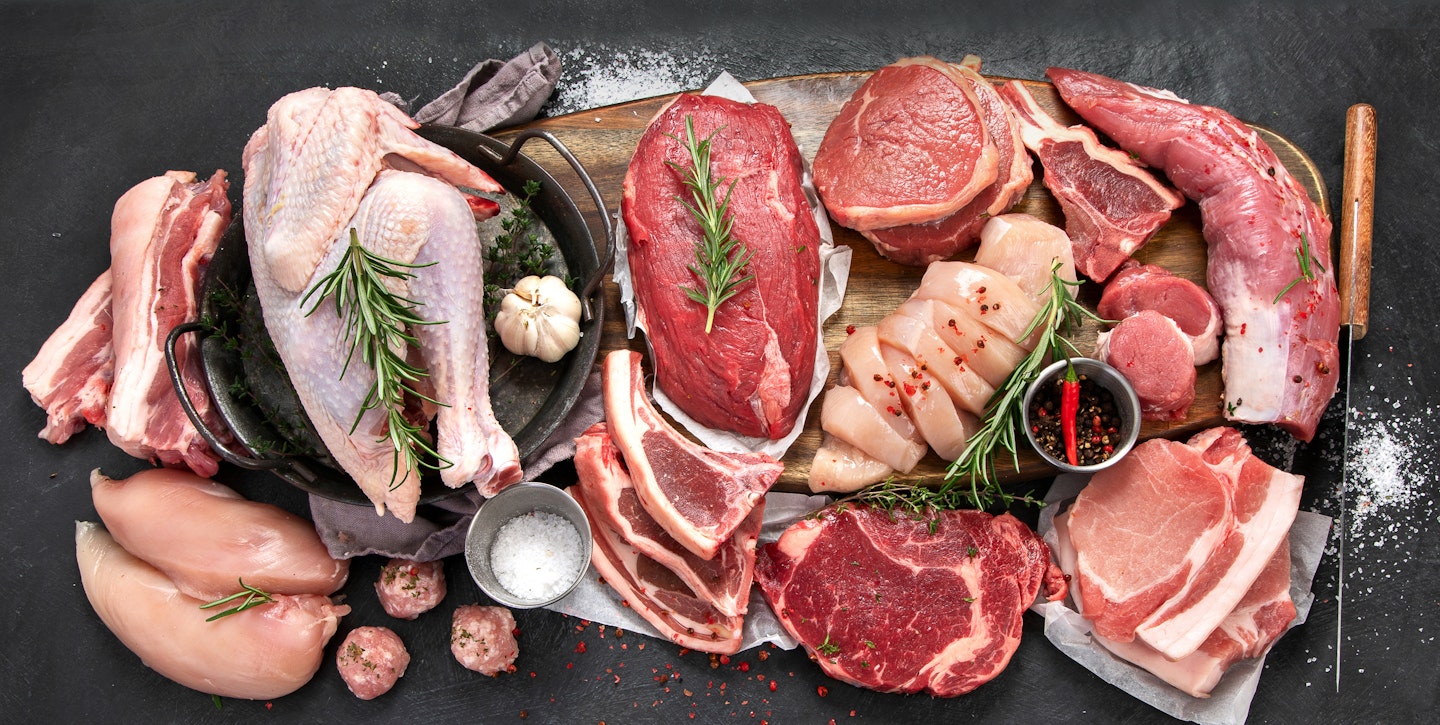
Emily Gilbert is the Features & Reviews Editor for Mother&Baby and has written for the website and previously the magazine for six years. Specialising in product reviews, Emily is the first to know about all the exciting new releases in the parenting industry.
